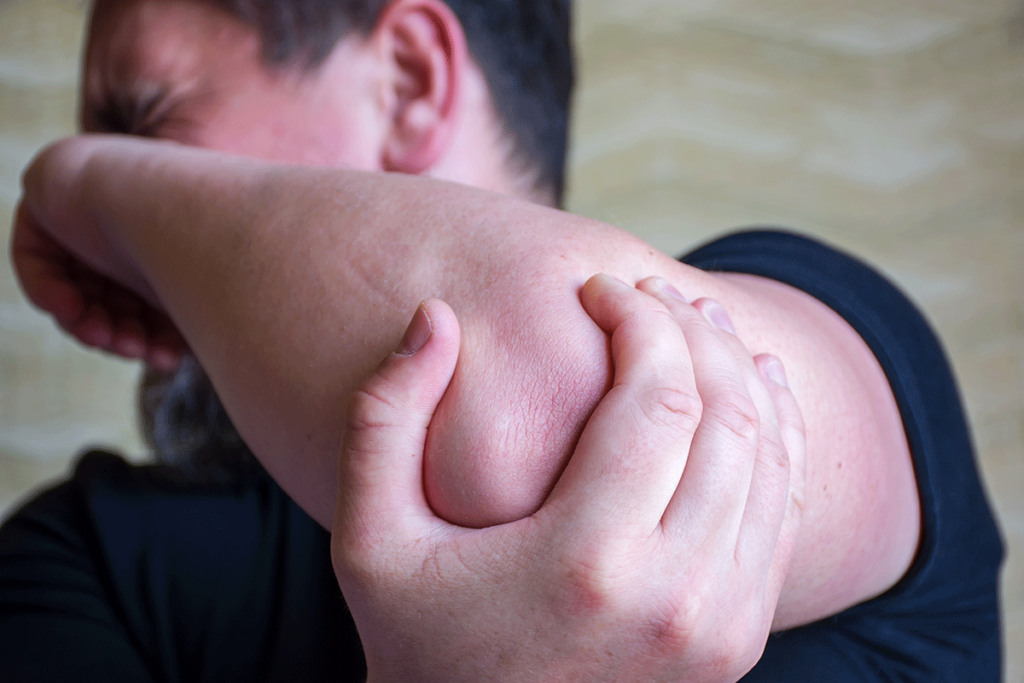Long-term alcohol abuse can have many severe effects on the body, including a condition called alcoholic neuropathy that causes damage to the nervous system. The best way to prevent long-term damage from alcohol abuse is professional help and treatment. Promises Behavioral Health offers addiction treatment in our residential alcohol rehab that can help you break the cycle for good—you just have to reach out. Call 844.875.5609 today for more information about our programs and how we can help.
What Is Alcoholic Neuropathy?
Alcoholic neuropathy is a condition caused by chronic alcohol abuse. It damages the nerves outside the brain and spinal cord, known as peripheral neuropathy. Symptoms can include pain, numbness, tingling, loss of balance and coordination, muscle weakness, problems with digestion, and other issues. It can be very disabling if not treated properly.
Alcoholic neuropathy is not reversible, but with proper treatment and lifestyle changes, it can be managed effectively. Treatment focuses on relieving symptoms, controlling underlying conditions such as diabetes or vitamin deficiencies, and managing pain. Lifestyle changes recommended for good health include reducing alcohol consumption, quitting smoking, exercising regularly, and eating a balanced diet with adequate vitamins and minerals. Alcoholic neuropathy can be a serious condition, but with early diagnosis and treatment, it is possible to improve the quality of life for those affected.
One must understand that alcoholic neuropathy is not just caused by drinking too much alcohol in one sitting. Heavy drinking over time can cause damage to the nerves outside of the brain and spinal cord. This can lead to a range of disabling symptoms, such as pain, numbness, tingling, loss of balance and coordination, muscle weakness, and problems with digestion. In extreme cases, it can even cause paralysis or death.
Warning Signs of Alcoholic Neuropathy
Alcoholic neuropathy is a type of nerve damage caused by excessive alcohol consumption. It can lead to serious complications and even disability if left untreated. Symptoms of alcoholic neuropathy typically develop gradually over time but, in severe cases, may appear suddenly. Some of the most common warning signs include:
- Muscle weakness or pain
- Numbness or tingling
- Loss of coordination
- Trouble walking, especially in the dark
- Difficulty moving certain body parts
- Inability to tolerate heat or cold
- Bladder and bowel problems
- Sexual dysfunction
- Loss of appetite
If you experience any of these symptoms, it is vital to seek medical attention to determine the cause and begin treatment. Early diagnosis and intervention can help limit the damage caused by alcoholic neuropathy, reduce symptoms, and improve your overall quality of life.
Is There Treatment for Alcoholic Neuropathy?
Unfortunately, nerve damage caused by alcohol is not reversible; however, with proper treatment, it is possible to manage symptoms and prevent further damage. Treatment options may include medications to reduce pain and inflammation, physical therapy, and lifestyle modifications such as limiting alcohol intake.
Managing symptoms of alcoholic neuropathy requires a comprehensive approach to reducing the effects of alcohol on the body and nerves. This may include strategies such as:
- Abstaining from alcohol
- Limiting/avoiding certain activities or substances that contribute to nerve damage
- Making lifestyle changes
- Taking medications to relieve symptoms
Making lifestyle changes is a key component in managing symptoms of alcoholic neuropathy. Eating a healthy diet with plenty of fruits, vegetables, lean proteins, and whole grains can help to provide essential vitamins and nutrients necessary for nerve health. Exercise can also be beneficial, as it helps to increase circulation and improve muscle strength, which can help reduce neuropathic pain. It is important to talk with a doctor before starting or changing an exercise routine in order to avoid further nerve damage or injury.
Medications used to treat alcoholic neuropathy include anti-seizure medications and antidepressants. These can help to reduce the sensation of pain or tingling in the feet, hands, or other affected areas. Pain relievers such as ibuprofen or acetaminophen may also be prescribed for short-term relief from symptoms.
Learn More About Alcohol Addiction Treatment at Promises Behavioral Health
Early intervention is critical to the prevention of long-term, serious consequences from alcohol abuse. Treatment at the residential alcohol rehab at Promises can help you break the cycle of addiction, manage symptoms, and improve your quality of life. Call 844.875.5609 or fill out our online contact form for more information.

